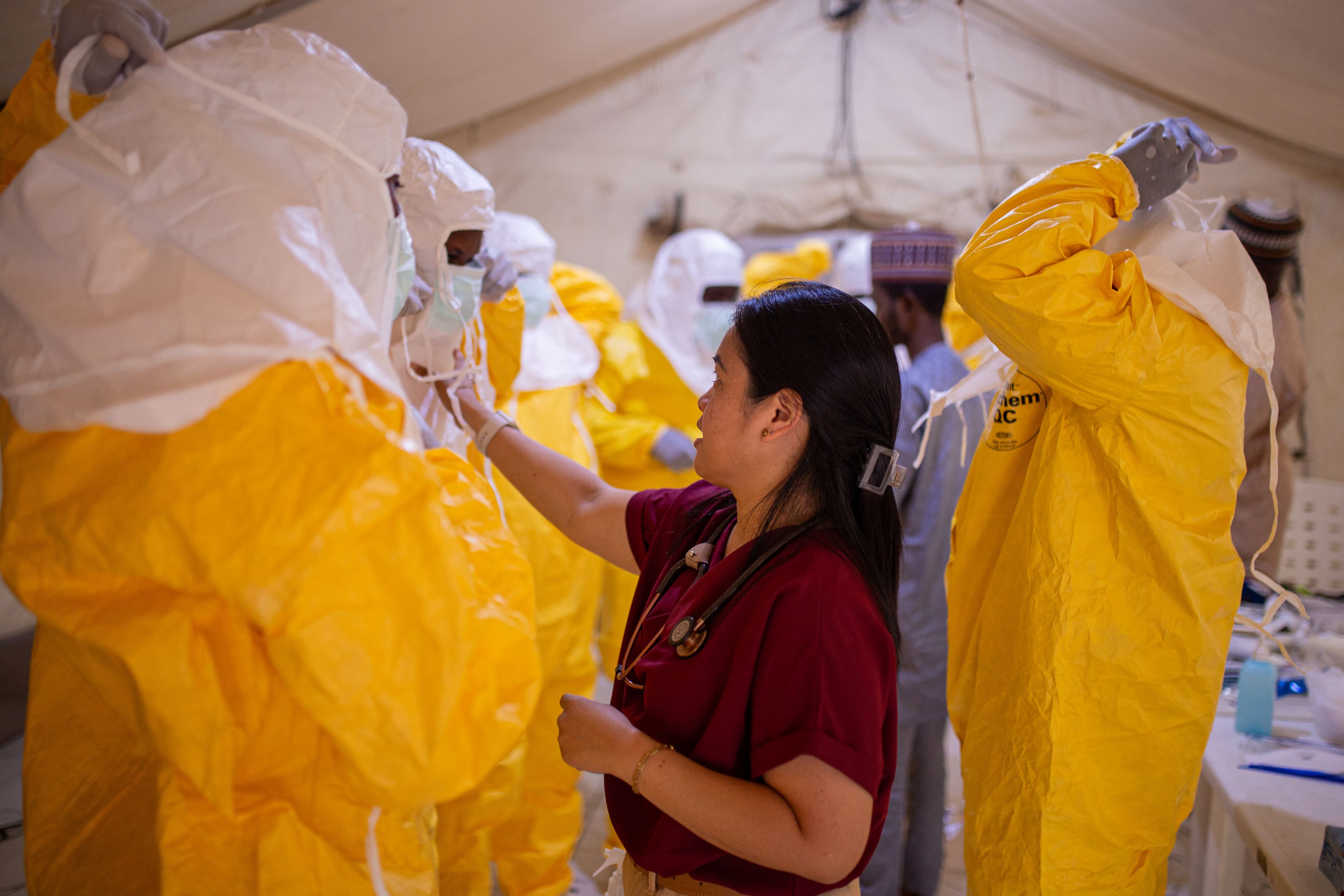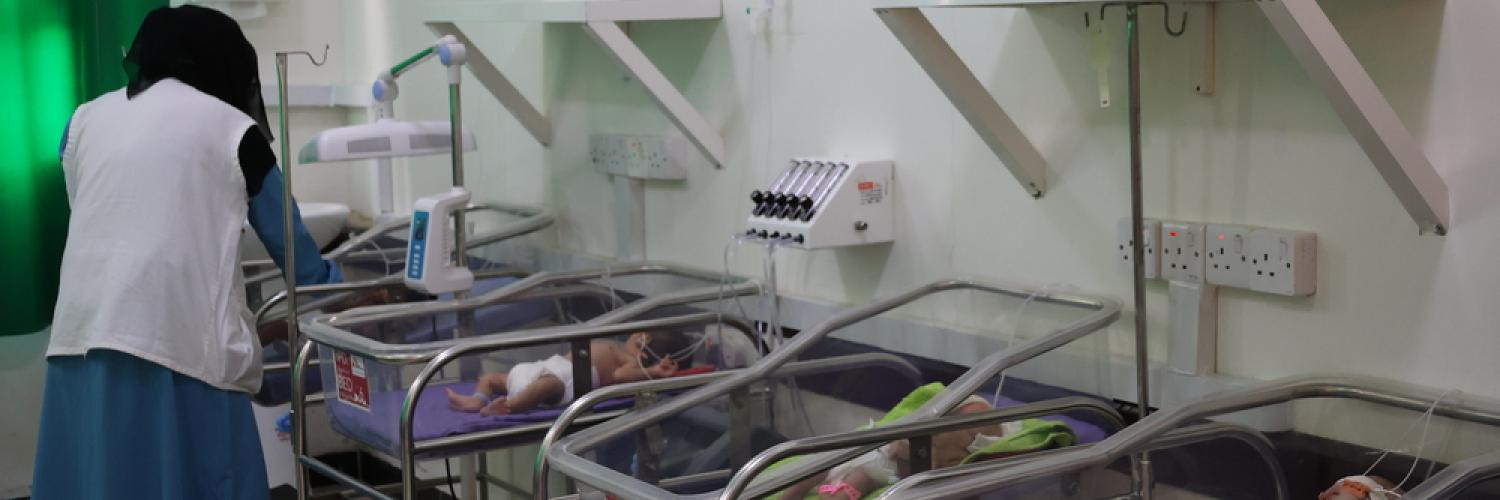URGENTLY NEEDED PROFILE
What does it mean to be a paediatrician at Doctors Without Borders?
Being a paediatrician for Doctors Without Borders / Médecins Sans Frontières (MSF) means providing quality medical care to children on paediatric, nutrition and/or neonatal wards in very close collaboration with other profiles such as midwives, nurses, health promoters, and logisticians. It means being responsible for the paediatric, nutrition and/or neonatal ward, do bedside teaching and organise trainings for the medical and paramedical staff in all aspects relating to paediatrics in order to help build the capacity of local staff to provide quality care for children, adapted to the local context.
It means you may be responding to measles or meningitis epidemic, managing hospital-based care for severely ill neonates, responding to the needs of ill, injured, or malnourished children, or working with displaced families in a refugee camp.
Your clinical skills and resourcefulness will be put to the test while you work in locations where the health care infrastructure may have completely fallen apart, or while you work to diagnose and treat medical conditions not found in your home countries.
You will not be facing these challenges alone - Doctors Without Borders provides expert technical support including extensive guidelines and protocols.
Some of the responsibilities can include:
- Applying medical knowledge and skills to prevention, diagnosis and treatment of children, ensuring integrated new-born and paediatric care through Emergency, OPD, and IPD services in new-borns and cases of malnutrition.
- Collaborating closely with the different departments of the hospital (e.g. Maternity), Knowing and ensuring all updated Doctors Without Borders medical protocols and universal precautions are followed and implemented, reducing bio-hazard risks and improving infection control.
- Ensuring on-going new-born and paediatric training (formal and bedside) of the medical/paramedical multidisciplinary team in order to optimize the new-born and paediatric quality of care.
- Reviewing and discussing selected complicated cases or mistakes and giving technical input.
- Jaymee Abarquez, pediatrician from the Philippines, spent seven months in Maiduguri, Nigeria
- "I went to my first mission in September 2023 in Nigeria. I spent seven months in Maiduguri.
"As a pediatrician in the Philippines, I have seen a variety of pediatric cases, complicated cases. But in Maiduguri, I encountered cases that were new to me.
"One of the biggest adjustments for me was malaria, which is endemic in Nigeria. Truth be told, I had not managed a single malaria case before I started working in Doctors Without Borders. But I prepared as much as I could.
"Not having seen any of the cases before, what was surprising for me is how they present in the hospital. For cerebral malaria, the babies would really come to the hospital unconscious. We give medications, then like 48 hours later, they're up and about! And it's one of the few cases that was very new for me, really.
"Patients arriving unconscious would really rattle anyone in the ICU. But since malaria is endemic in Nigeria, the local doctors have managed them very well. They're used to seeing these kinds of patients. They know what to expect, and how they are progressing.
"Another thing new to me is sickle cell disease, which is not very common in the Philippines. I saw how the doctors treat sickle cell disease and their complications, and include these into considerations for other diseases.
"Other cases, how pneumonia looks on malnourished patients, and how badly dehydration can affect a malnourished patient, I hadn't seen that many cases before. I have been exposed to malnutrition before, but here I really learned a lot, because they really were the bulk of the patients that we get. So I was juggling learning the Doctors Without Borders guidelines and using a new kind of clinical eye.
"If there is another pediatrician going to Nigeria, I would recommend training or exposure to these diseases: malaria, sickle cell diseases, pneumonia, and how they interact with malnutrition, especially in relation to Doctors Without Borders guidelines. Maybe you have seen them before, at least in theory, but it’s good to refresh your memory. And think about how to do that in conjunction with how we manage it in Doctors Without Borders, that would be very helpful."
Requirements
- Compliance with Essential Criteria
- Completed residency in paediatrics
- Minimum of 5 years experience post-qualification
- Minimum of three years of clinical experience in Paediatrics
- Flexibility to work with adults patients depending on circumstances
- Availability of 6 - 12 months per each assignment
- Adhere to our Behavioral Commitments and MSF Charter.
Assets
- Additional clinical experience in areas such as Obstetrics/Gynaecology, Nutrition, Emergency, Infectious Diseases, Public Health, General Medicine, Anaesthetics, ICU or Minor Surgery
- Postgraduate study in international public health, refugee health, infectious diseases or tropical medicine
- Training of added value: neonatology and/or intensive care, management of children requiring emergency care or cardio-respiratory intensive care: APLS (Acute Pediatric Life Support) and/or HBB (Helping Babies Breathe), ETAT (Emergency Triage, Assessment and Treatment)
- Completion of your speciality training is not mandatory before applying, however, Médecins Sans Frontières does have significant needs for fully qualified paediatricians.
This is an urgently needed profile
Start your application to join our team. You will be directed to the MSF Hong Kong recruitment website to submit your application.
